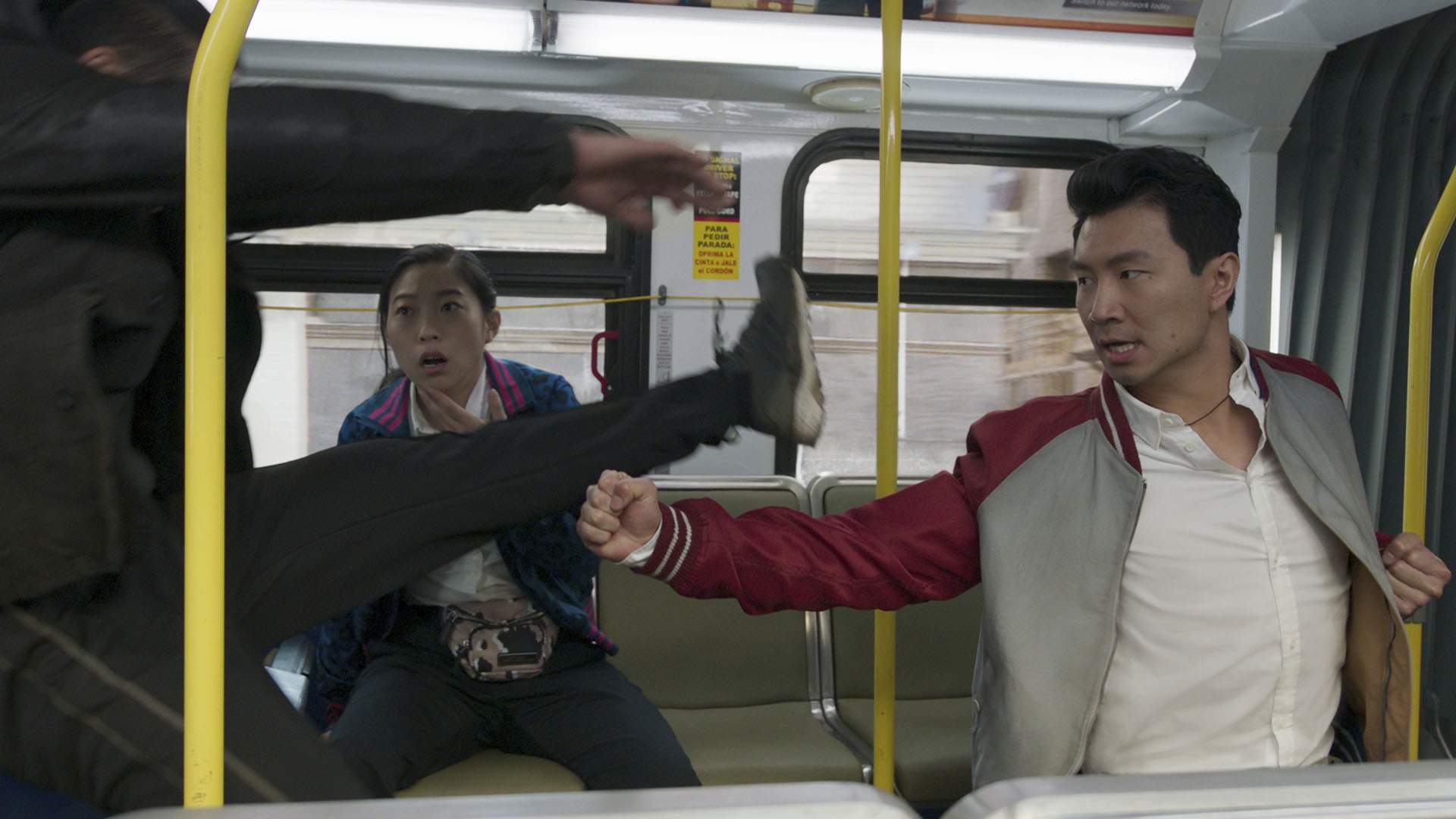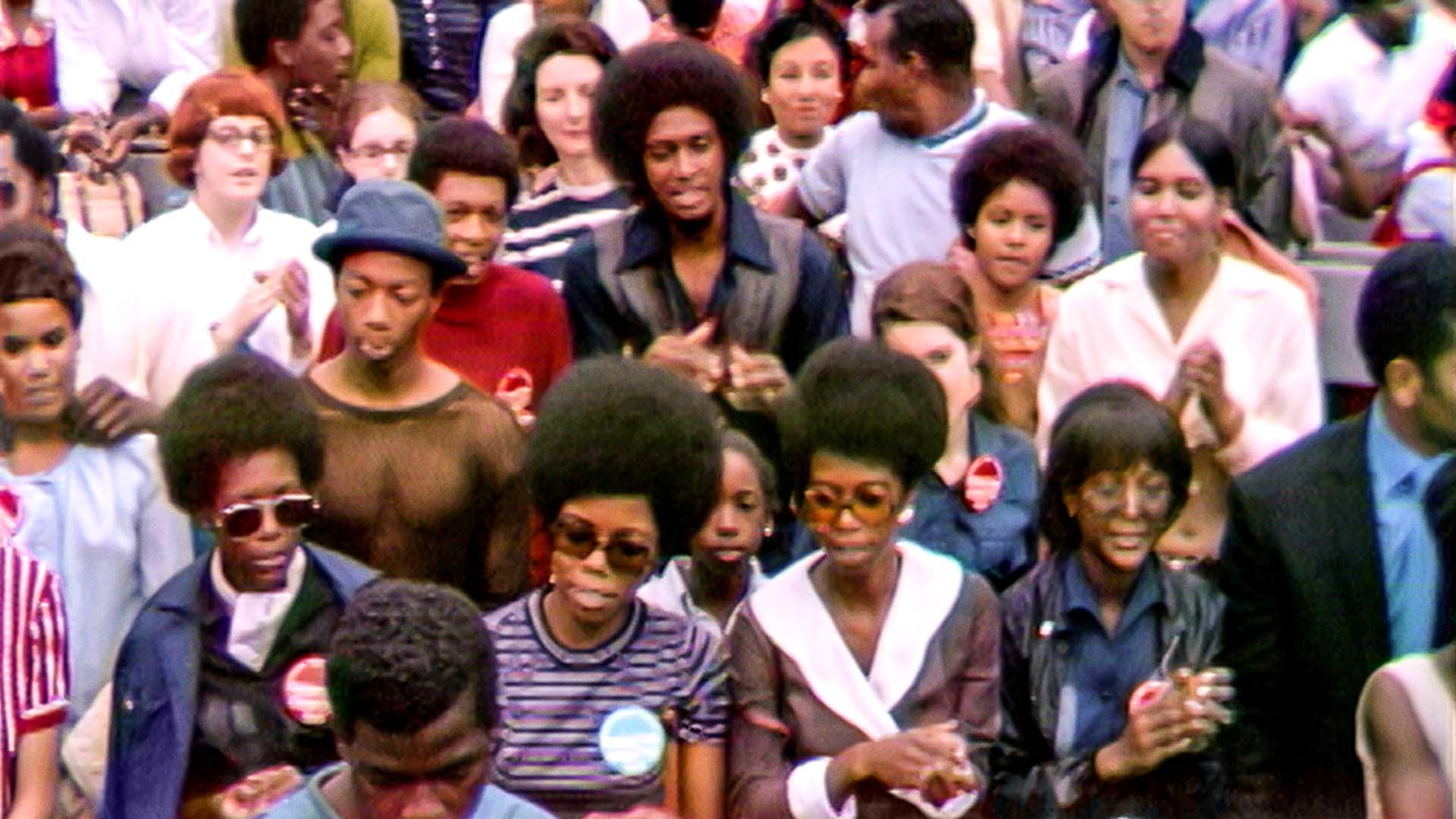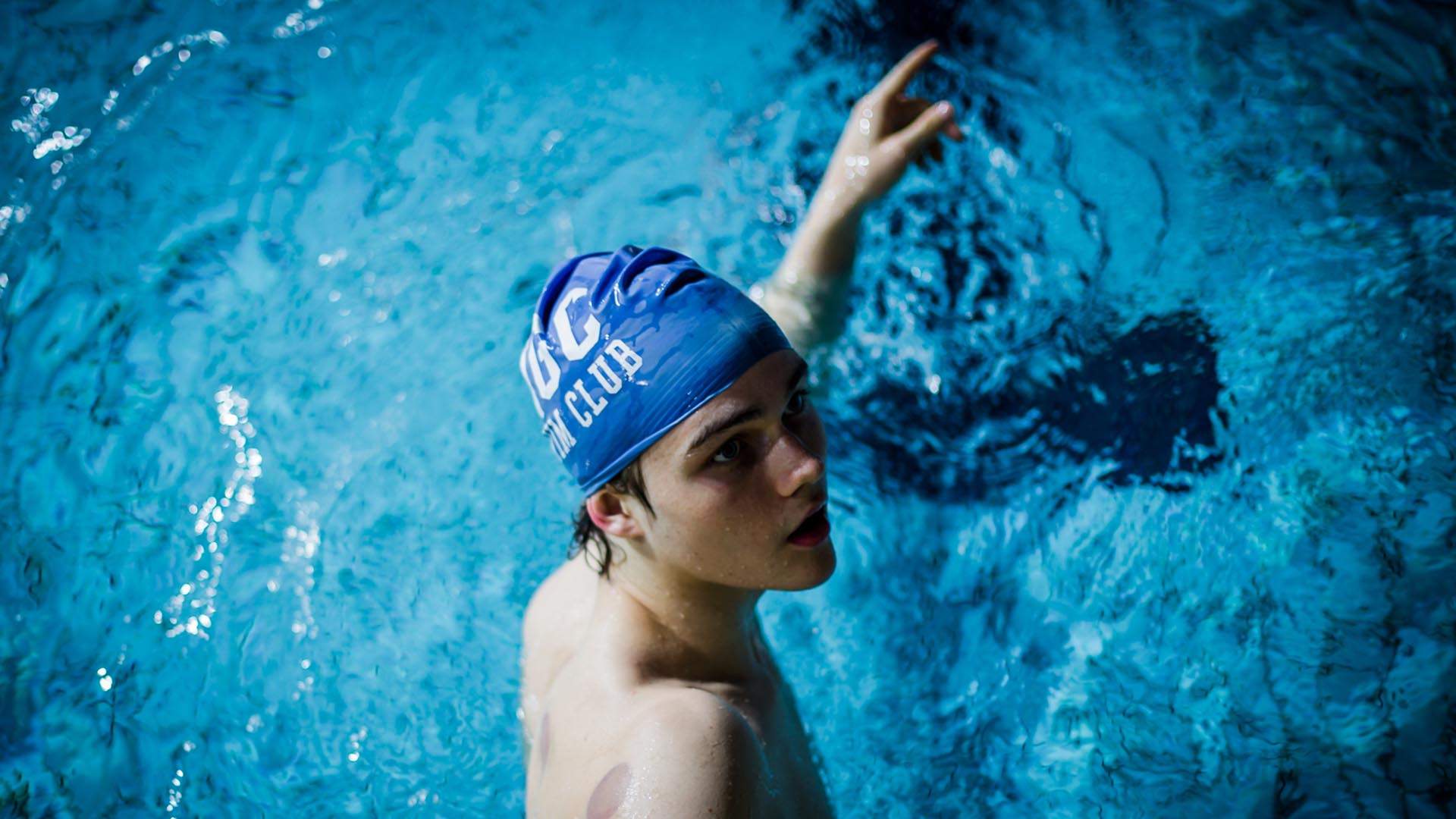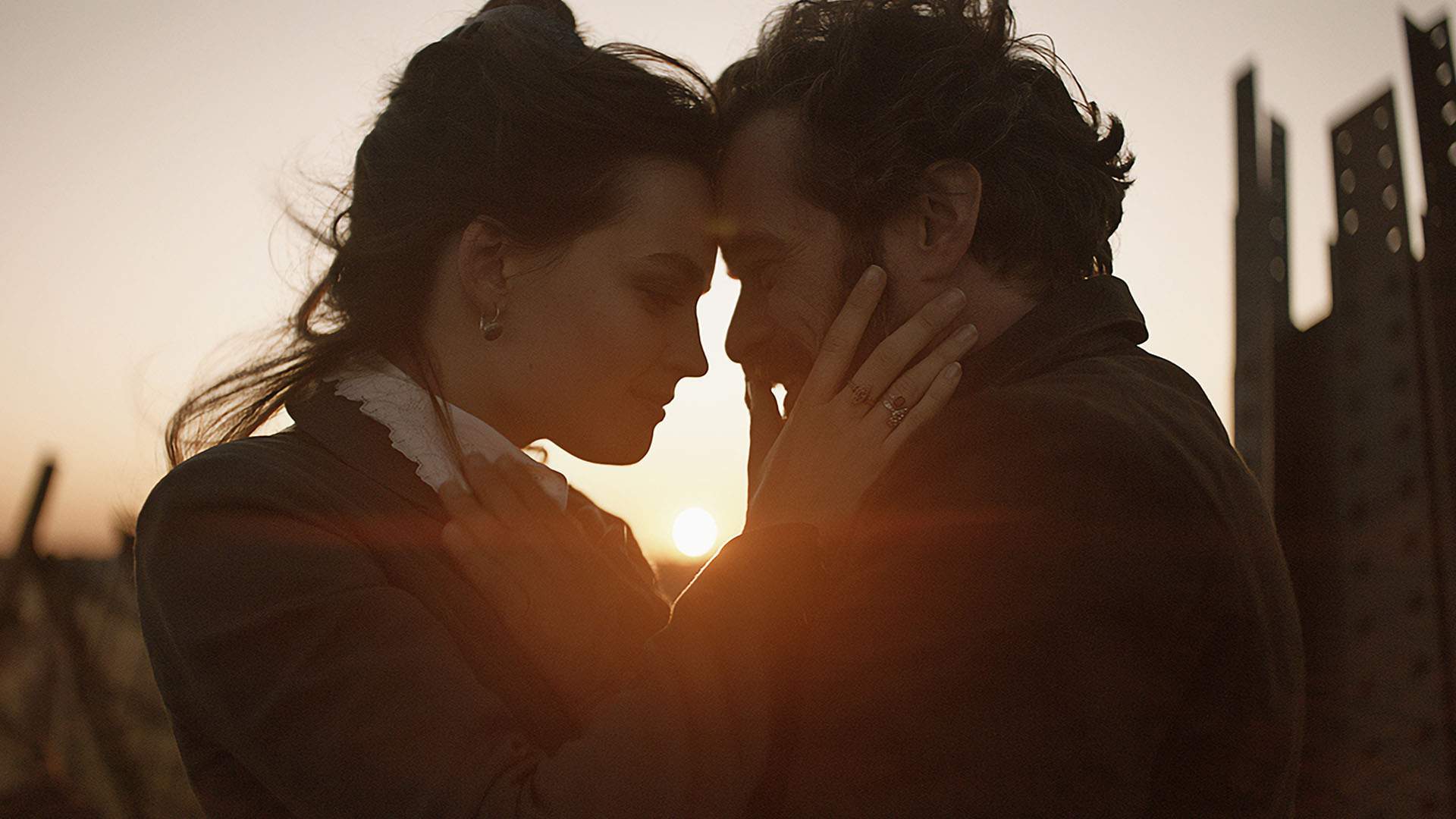The New Movies You Can Watch at Australian Cinemas From September 2
Head to the flicks to watch Marvel do a martial arts movie, a phenomenal music documentary and a stellar Australian drama.
Something delightful has been happening in cinemas in some parts of the country. After numerous periods spent empty during the pandemic, with projectors silent, theatres bare and the smell of popcorn fading, picture palaces in many Australian regions are back in business — including both big chains and smaller independent sites in Brisbane at present.
During COVID-19 lockdowns, no one was short on things to watch, of course. In fact, you probably feel like you've streamed every movie ever made, including new releases, comedies, music documentaries, Studio Ghibli's animated fare and Nicolas Cage-starring flicks. But, even if you've spent all your time of late glued to your small screen, we're betting you just can't wait to sit in a darkened room and soak up the splendour of the bigger version. Thankfully, plenty of new films are hitting cinemas so that you can do just that — and we've rounded up, watched and reviewed everything on offer this week.

SHANG-CHI AND THE LEGEND OF THE TEN RINGS
Social media can get you anywhere, or so the story behind Marvel's latest movie and the actor playing its eponymous character demonstrates. Back in 2014, Simu Liu tweeted at the comic book company-turned-filmmaking powerhouse, asking "how about an Asian American hero?". In 2018, after Black Panther's success, he tweeted again — querying "are we gonna talk or what?" with the #ShangChi hashtag. Now, the Kim's Convenience star leads the Marvel Cinematic Universe's 25th feature, and the first to focus on a hero of Asian descent in its 13-year run to-date. He's the face of the franchise's latest step forward, both in terms of inclusion and representation, and in keeping the MCU's ongoing narrative forever hurtling onwards. Liu anchors a film about history and destiny, too — one that's about breaking free from the past and committing to the future — and he heartily embraces the occasion. As directed and co-written by Destin Daniel Cretton (Just Mercy, Short Term 12), Shang-Chi and the Legend of the Ten Rings itself flits between offering up a lively picture that strives to carve out its own space in the series, and simply serving up more of the usual Marvel template but in enticing packaging, however.
Liu first graces the screen as Shaun, a San Francisco valet who's happy parking cars with his best pal Katy (Awkwafina, Breaking News in Yuba County), even though they both know they could follow other paths. While the film shows Katy's family decrying her lack of ambition, Shaun has a keener awareness of what he isn't doing — because he's really Shang-Chi, the son of centuries-old warlord Xu Wenwu (Tony Leung, The Grandmaster), who leads the shadowy Ten Rings criminal organisation and wears the mystical bracelets it's named after. Shang-Chi also has the otherworldly Jiang Li (Fala Chen, The Undoing), the former guardian of an enchanted village filled with dutiful warriors and mythical creatures, for a mother. But when she died when he was a child, his life changed. After the grief-stricken Wenwu obsessively trained him to become an assassin and see vengeance, Shang-Chi fled for the US, where he's lived since. Then, initially via a postcard from his Macau-based, underground fight club-running sister Xu Xialing (debutant Meng'er Zhang), and then thanks a violent visit from his dad's henchmen, he's forced into a family reunion that puts the fate of the universe at stake.
Read our full review.

SUMMER OF SOUL (...OR, WHEN THE REVOLUTION COULD NOT BE TELEVISED)
Much of Summer of Soul (...Or, When the Revolution Could Not Be Televised) involves stunning archival footage, as recorded more than five decades ago, capturing live performances by an astonishing lineup of musicians. At the 1969 Harlem Cultural Festival, a free series of gigs that rolled out across six weekend and saw around 300,000 people head along, Nina Simone, Stevie Wonder, BB King, Sly and the Family Stone, the Staples Singers, Mahalia Jackson and Gladys Knight & the Pips all took to the stage — among others — and the newly unearthed reels that immortalised their efforts are truly the stuff that music documentary dreams are made of. For his filmmaking debut, Ahmir 'Questlove' Thompson could've simply stitched together different songs from various sets across the festival, and let those music superstars lead the show. He could've taken the immersive, observational approach as Amazing Grace did with Aretha Franklin and her famed gospel gigs, and jettisoned context. But The Roots frontman and drummer doesn't make that choice, and he ensures that two words echo strongly throughout the film as a result: "Black Woodstock".
Also in New York — upstate in the town of Bethel, 100 miles north of Harlem — Woodstock itself took place in the summer of 1969 as well. The Harlem Cultural Festival kicked off before and kept playing after its better-known counterpart ended, but comparing the two events makes quite the statement. Why has one endured in public consciousness and proven pervasive in popular culture, but not the other? Why did footage of one quickly get turned into a film, with the Woodstock documentary first reaching cinemas in 1970, but recordings of the other largely sat in a basement for half a century? Why did television veteran Hal Tulchin, who shot the entire Harlem Cultural Festival from start to finish on four cameras loaded up with two-inch videotape, get told that there was little interest in releasing much from a "Black Woodstock"? (One New York TV station aired two hour-long specials at the time, but that's all that eventuated until now.) These questions and the US' historical treatment of people in colour go hand in hand, and whenever the words "Black Woodstock" are uttered, that truth flutters through Summer of Soul. Here's another query that belongs with the others: why was such an important event left to fade in memories, and in broader awareness, to the point that many watching Questlove's exceptional doco won't have heard of it until now?
Read our full review.

STREAMLINE
Chasing a dream can feel like swimming through cool water on a hot summer's day — gliding, splashing and laidback paddling all included — with each refreshing stroke propelling you closer towards your own personal finish line. That's when everything is going well, of course, and when whatever your heart and mind desires seems as if it's waiting at the end of the pool. Otherwise, when you're bogged down by everyday minutiae and nothing seems to inch forward, working towards a set goal can also resemble treading water. It can mirror repetitively doing laps, too, when your destination seems out of sight despite all the hard work you're putting in. And, if you're tired and fed up with all the effort needed to even keep afloat — and when your heart is no longer in it — it can feel like floundering and drowning. In Streamline, all of these sensations and emotions bubble up for 15-year-old Benjamin Lane (Levi Miller, A Wrinkle in Time), as he pursues a professional swimming career, a spot in a prestigious squad in Brisbane and, ideally, an Olympics berth and all the glory that goes with it. Indeed, one of the delights of this Australian movie, which boasts Ian Thorpe as one of its executive producers, is how evocatively it sprinkles these swashes of feelings across the screen.
Written and directed by feature first-timer Tyson Wade Johnston, Streamline is a sports drama as well as a small town-set family drama — and it's also a portrait of that time when you're expected to dive headfirst into adulthood, and into knowing what you want to do with the rest of your life, but you're also inescapably wracked with uncertainty and apprehension. Teenage awkwardness and angst aren't simple states to capture on-screen, although enough coming-of-age movies have been buoyed by both; however, Streamline opts to plunge deep into the existential stress that goes beyond feeling out of place with your peers or being annoyed at your parents. Its protagonist, who everyone just calls Boy, only really connects with his girlfriend and best friend Patti (Tasia Zalar, Mystery Road) at school. And, he's definitely mad at his mother and father. He resents his single mum Kim's (Laura Gordon, Undertow) efforts to keep him focused, which he sees as controlling rather than nurturing. He's doing tumble turns internally over his dad Rob (Jason Isaacs, Creation Stories), who's just been released from prison and has never been a positive influence in his life. Boy is also furious at his surrogate father figure, Coach Clarke (Robert Morgan, The Secrets She Keeps), for all the cajoling that coaches tend to give. But, mostly the swimming prodigy is unsure — about what he wants, what he's been told he wants and what to do next.
Read our full review.

EIFFEL
Speculating on the past, and on the creation of one of the planet's most famous monuments, Eiffel asks a question: why did Gustave Eiffel build the tower that shares his name? That mightn't be the usual query that runs through people's minds as they stare up at the iconic structure; however, competing to win the right to construct it for the Exposition Universelle of 1889 in Paris represented a significant change of opinion for the engineer, after he'd initially turned down the concept when it was suggested to him by his employees. The result of that about-face has left its mark on history, France and the travel itineraries of everyone who has enjoyed a Gallic holiday ever since. Although he'd already achieved fame and acclaim due to his help building the Statue of Liberty, his eponymous tower is the reason the world know's Eiffel's name now, too. Writer/director Martin Bourboulon (Daddy or Mommy) and his co-scribes Thomas Bidegain (The Sisters Brothers), Martin Brossollet (Détectives), Natalie Carter (Thérèse Desqueyroux) and Caroline Bongrand (Parlez-moi d'amour) posit a reason, and the fact that their film is a romantic drama spells out everything it needs to. Here, Eiffel (Romain Duris, All the Money in the World) decides to assemble the A-shaped mass of wrought-iron lattice because of the woman, Adrienne Bourgès (Emma Mackey, Sex Education), he was set to marry when he was younger, lost touch with after their nuptials were called off, and then sees again just as the Exposition Universelle project is under discussion.
The idea driving Eiffel is simplistic and sentimental, given that it's a film about a man erecting something unmistakably and plainly phallic for love. A biopic, this definitely isn't. But it's to Bourboulon, Duris and Mackey's credit that everything here flickers with enough feeling, even though a behind-the-scenes look at how the Eiffel Tower was built between 1886–89 — including the actual mechanics of assembling its pieces, and also the complex reaction in France at the time — could've easily fuelled an entire movie without a romance layered on top. (Charting someone simply achieving a great feat, such as constructing what was the tallest structure in the world at the time, and what remains one of the most well-known landmarks there is, would've also proven suitably rousing without the extra tugging at heartstrings.) Turning history into amorous fiction is the path this feature has chosen, however, and Bourboulon wraps it up in handsome period staging and a passionate tone. There's also a soapiness to Eiffel, too, filled as it is with yearning looks, secret trysts and will they, won't they twists. But if it wasn't for Duris, Mackey and their convincing performances — Duris' reliably ability to convey inner conflict with charm, particularly — the film would lean further in that direction. Marrying the origin story of an iconic tower with a grand love story still makes for an awkward and overly melodramatic fit, though.

If you're wondering what else is currently screening in cinemas — or has been lately — check out our rundown of new films released in Australia on April 1, April 8, April 15, April 22 and April 29; May 6, May 13, May 20 and May 27; June 3, June 10, June 17 and June 24; July 1, July 8, July 15, July 22 and July 29; and August 5, August 12, August 19 and August 26.
You can also read our full reviews of a heap of recent movies, such as Nobody, The Father, Willy's Wonderland, Collective, Voyagers, Gunda, Supernova, The Dissident, The United States vs Billie Holiday, First Cow, Wrath of Man, Locked Down, The Perfect Candidate, Those Who Wish Me Dead, Spiral: From the Book of Saw, Ema, A Quiet Place Part II, Cruella, My Name Is Gulpilil, Lapsis, The Conjuring: The Devil Made Me Do It, Fast and Furious 9, Valerie Taylor: Playing with Sharks, In the Heights, Herself, Little Joe, Black Widow, The Sparks Brothers, Nine Days, Gunpowder Milkshake, Space Jam: A New Legacy, Old, Jungle Cruise, The Suicide Squad, Free Guy, Respect, The Night House, Candyman and Annette.








